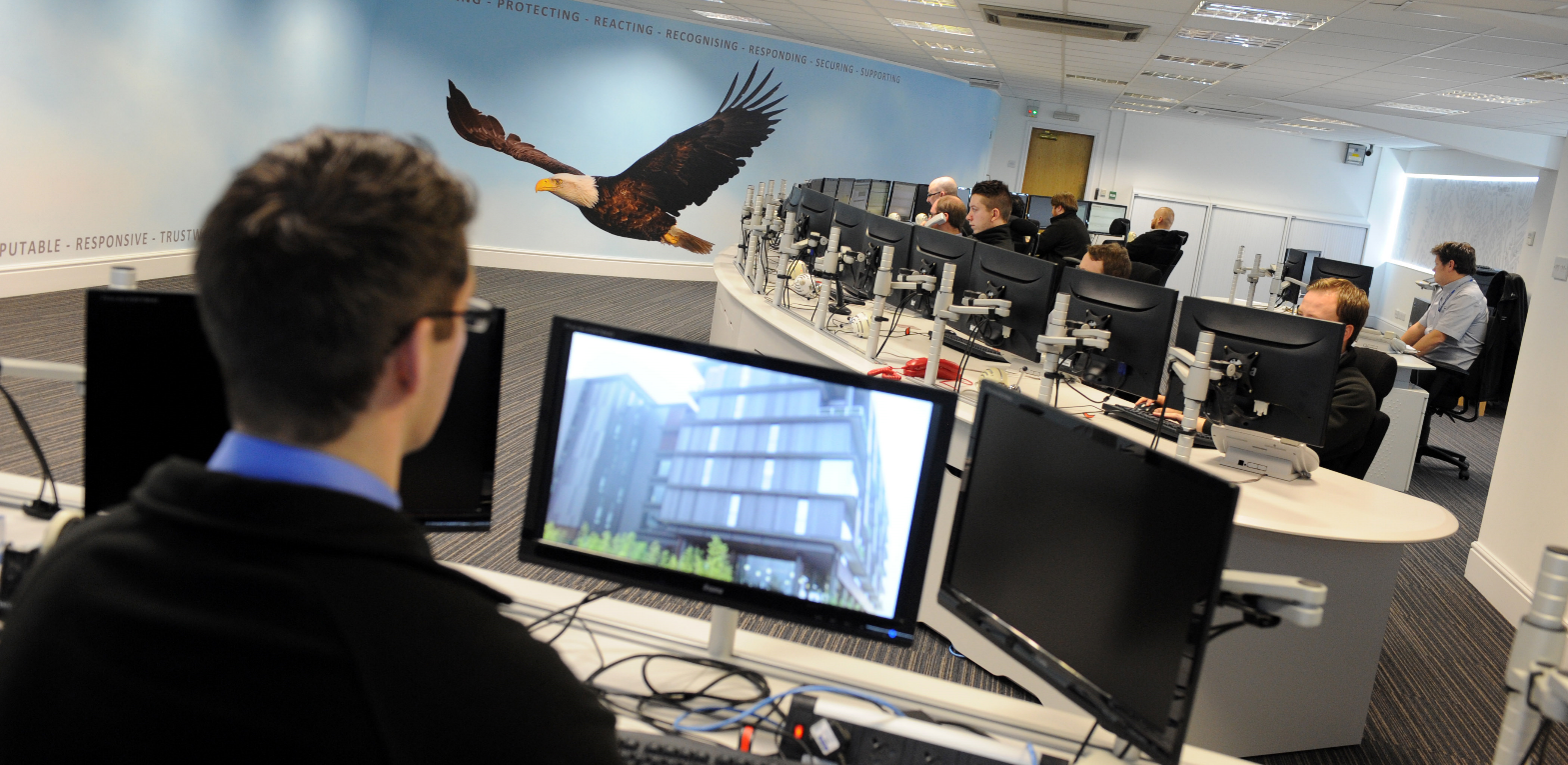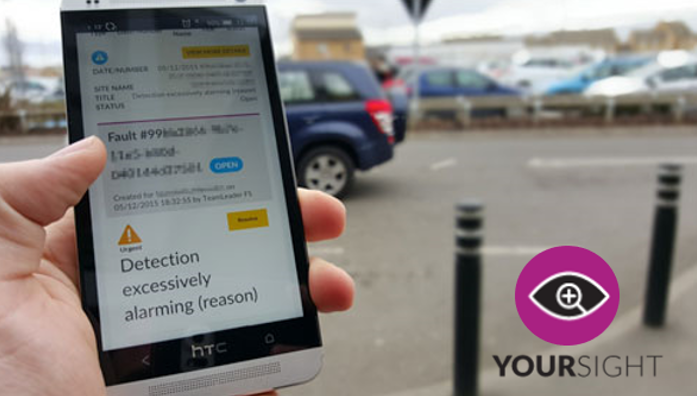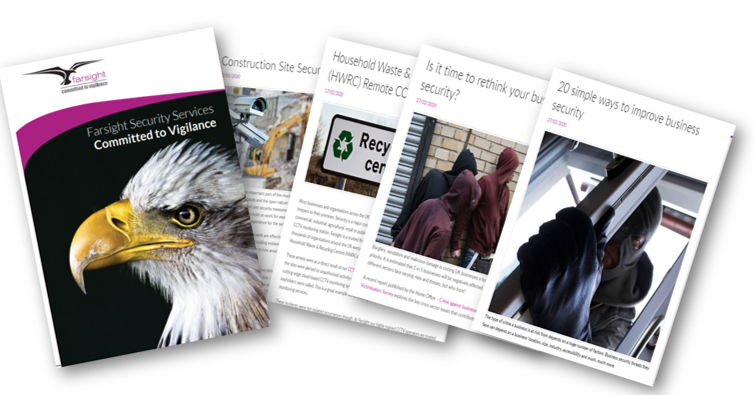Choosing security suppliers is a high involvement purchase. Site owners and facilities managers will be making a big investment when purchasing security – whether that’s the installation of CCTV or the remote monitoring of a system.
In the case of remote monitoring, it’s essential that the site owner considers a few factors that will make or break whether their alarms are answered and their site is protected.
If a remote monitoring station fails to answer alarms swiftly, if they lose connection with the site or they simply don’t have the personnel to deal with an incident, then a site will be left vulnerable – there are no if’s and but’s about it.
If the remote monitoring station is not efficiently monitoring a site’s security system then their security is not optimised.
Often installers will recommend a remote monitoring and alarm receiving centre to the end-user. Installers will want the remote monitoring station to be getting the right results for their clients. But how do you choose a remote monitoring station that will get it right, one that will be invested in providing the best security for a commercial site?
We’ve put together a few questions that you should ask the remote monitoring station prior to setting up a new connection. With satisfactory answers to all of the questions below you’ll be able to feel confident that the security system you’ve installed will be getting the site owner and installer real value for money.
1. How quickly do you answer alarms?
Reputable alarm receiving centres and remote monitoring stations will be able to report to you how quickly, on average, their operators answer alarms.
The BS8418 minimum requirement is that 80 per cent of alarms are answered in 90 seconds or less, and that 98.5 per cent are answered in 180 seconds or less.
With the industry average being 75 per cent under 90 seconds and 77 per cent under 180 seconds, it’s essential that you know if your chosen remote monitoring station is one of the faster ones is the business. Find out how quickly we answer alarms.
2. How do you protect footage from CCTV cameras?
The protection of CCTV footage is crucial – both from a data protection point of view and in protecting potential evidence.
Remote monitoring stations must abide by strict security regulations, which involve extensive security systems for the station itself. You can find out more about these requirements in our About the Observatory page.
3. When will they cut off alarms?
Every remote monitoring station will limit the number of incoming alarms from a site. This is to reduce the number of repeated false alarms coming through to the station.
However, some remote monitoring stations will set this number surprisingly low – say at five alarms – that may mean the site is cut off when there is, in fact, an incident occurring. Not only that, some remote monitoring stations will actually charge the customer for additional alarms. Here at Farsight we’re always transparent about costs, there’s never an additional charge for additional alarms.
Ask the remote monitoring station at what level they limit incoming alarms – remember that many will have a tiered system with a higher cost being attached to a higher number of alarms before cut-off. It is also important to note that the COVID-19 pandemic may affect the treatment of persistent false alarms by remote monitoring stations, it is best to ask what their position is.
4. What kind of environment do your operators work in?
Find out what kind of environment the security operators work in, as this will be crucial in deciding how well they can view monitors and CCTV footage, whilst also staying attentive and engaged with all the necessary equipment readily available.
An example is how many screens operators monitor at the same time where we believe ‘operator overload’ could mean crucial activity on a site could be missed. See more on how Farsight CCTV operators are set up to ensure they can focus on one alarm at a time.

5. Do they care?
Operators who are not dedicated to their role will easily miss signs of an incident or even alarms. Understand how the remote monitoring station keeps their employees engaged and proactive. You’ll then be able to gauge how diligently they will carry out their jobs.
You can stay up to date with a selection of the incidents our security operators manage in our news.
6. Are they trained?
Security operator training is an extensive process, with a lot relying on an operator’s ability to deal with high-pressure situations in an efficient manner.
ISO 9001 is an international standard that will help you decided whether operators are trained to a sufficient level. The remote monitoring station should be able to provide evidence that they’ve achieved and maintained this standard.
You can find out more about how security operators should be trained in our blog Security Operator Training: CCTV training done right.
7. Will your monitoring equipment fail?
Remote monitoring stations have a huge amount of technology in place to ensure they are able to effectively monitor thousands of sites across a large area. This technology includes advanced hardware and software that needs constant maintenance.
It’s important that every remote monitoring station has IT experts trained to deal with remote monitoring who are dedicated to maintaining the systems. You can find out about Farsight’s in our Meet the Team page.
If there is a catastrophic failure at the remote monitoring station, you should also be confident that there is a suitable back up solution so footage and alarms are routed to another location and sites are not left vulnerable. For example, Farsight Security Services has a backup remote monitoring station located in Manchester.
8. Will your operators really investigate the cause of an alarm?
When an alarm is raised at a site, it’s important that the cause of the alarm is fully investigated so intruders or other risks are not missed.
Ask a remote monitoring station how they investigate alarms – do they pan and zoom cameras? Do they spend time looking at footage? Do they use other, nearby cameras on the site to get a different angle on the incident?
9. How will remote monitoring help stop crimes, before they even happen?
Although for private property CCTV is event-driven (CCTV cameras are only monitored live when an alarm is raised) there are some crucial ways remote monitoring stations help prevent damage from occurring.
Audio warnings are a great preventative measure – nine times out of ten they will scare intruders away from a site. Find out more about audio warnings in our blog: What are Audio Warnings and how do they work?
Also, here at Farsight we can provide installers with CCTV signs that alert intruders to the fact that CCTV is in action and being monitored by trained professionals – a very effective deterrent. These CCTV signs are a requirement by law, but with the additional message that the cameras are monitored by a remote monitoring station they become even more of an effective deterrent.
See the deterrent effect of issuing an audio warning to intruders on this commercial site in action:
10. How do I know if you are effectively monitoring the security systems installed?
As an installer and/or commercial site manager, you’ll want to track the performance of security systems. To help you do that, remote monitoring stations should be completely transparent about their performance.
Ask remote monitoring stations how they will report on their performance and what access you’ll have to such reporting. From these reports you should be able to tell how quickly alarms are answered, how many alarms are received, how long operators spend looking at CCTV footage and more.
11. Have they monitored sites like this one before?
Every site is different and will have different requirements. However, depending on the size of the site and type of site that they are, each site will face a selection of different risks that remote monitoring can help tackle. So, with that in mind, experience monitoring a range of sites is essential. Ask the monitoring stations that you are considering for examples of some of the clients they work with in your sector.
12. Will they know if my CCTV and security systems fail?
As security system engineers you are also often responsible for the ongoing maintenance of a site. The remote monitoring station should make that easier too.
Ask the remote video response centre (RVRC) how they will notify you of security systems that they’ve lost connection with. The British Standard BS8418, which governs RVRCs, states that RVRCs must report a connection loss. However, this standard does not stipulate a minimum or maximum amount of time in which a loss of connection can be reported.
Ask the RVRC how they invest in connectivity monitoring to ensure it’s an efficient and effective process.
13. How will the RVRC communicate with installers & business site clients
Communication between the RVRC, installer and business site client is essential in ensuring security is optimised and each is working together efficiently . Our industry leading, cloud-based platform – YourSite, has transformed the way we can effectively communicate with installers and end-users to report faults or incidents occurring at their sites. This allows us to act swiftly if an incident should occur, following a set response agreement. This typically includes: contacting the key holder, emergency services if required and issuing an audio warning if we’re able.

14. Are there enough operators on shift?
Find how many operators work in the remote monitoring station. The more operators there are available, the more time they can dedicate to resolving alarms and responding to incidents.
15. Do they really monitor 24/7?
Similarly, the more operators a remote monitoring station has trained, the more efficiency you’ll see between their night and day shift operations. For example, Farsight have the ability to have ten operators on shift at any given time and can guarantee that they monitor alarms 24/7 if those are the required hours agreed upon.
With all the above points making a huge impact on the quality of service an RVRC provides to end-users and yourself, it’s also worth noting how supportive and knowledgeable the remote monitoring station is. Find out more about how Farsight have simplified the commissioning process and provide support in: Bringing Sites to Farsight.
Find out more about working with Farsight
Our remote monitoring experts are on hand to answer your queries and tell you about our cost effective remote monitoring packages, simply complete the contact form. Alternatively, feel free to give us a no obligation call on 0845 371 0101 or you can request a call back.
Further Reading
You may also be interested in reading these articles from our blog to help your business security:
Is it time to rethink your business security
20 simple ways to improve your business security
Where to position security cameras in your business
Why lighting can make all the difference
Why do you need remote monitoring services
Subscribe to our e-newsletter
If you haven’t already, why not subscribe to our security updates, industry news and commercial sector articles? You’ll receive them directly to your inbox.
Newsletter Signup Form
"*" indicates required fields







